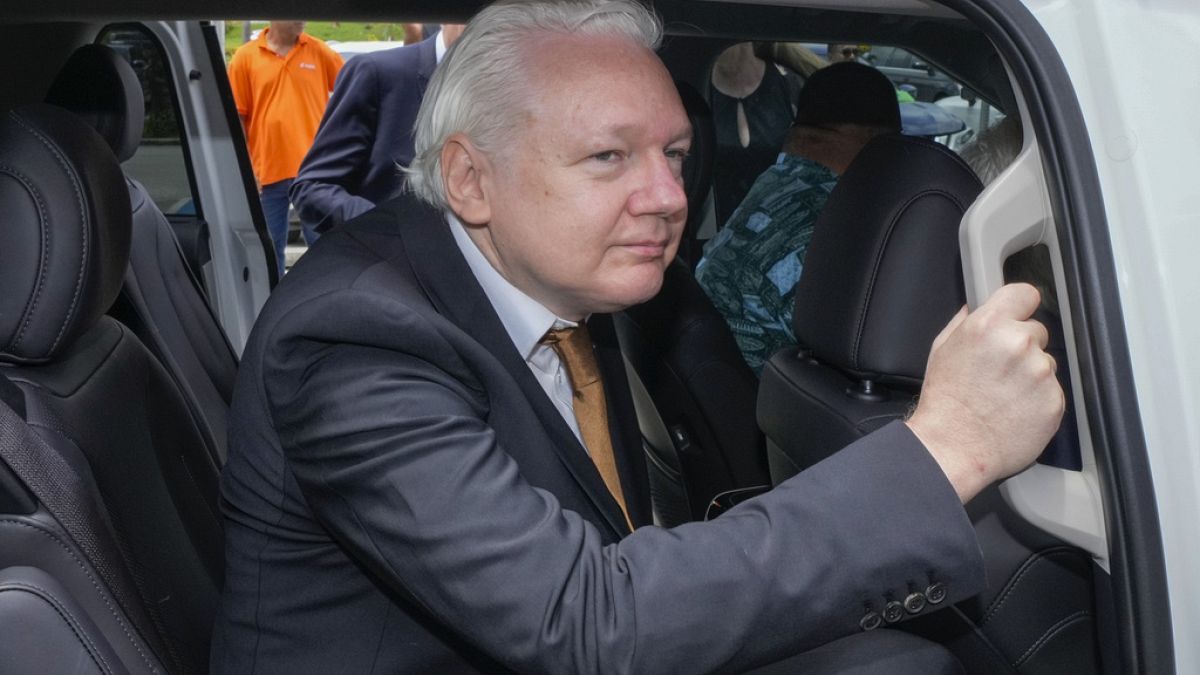
WikiLeaks founder Julian Assange pleaded guilty to obtaining and publishing US military secrets Wednesday in a deal with Justice Department prosecutors that secures his liberty and concludes a drawn-out legal saga that raised divisive questions about press freedom and national security.
The criminal case of international intrigue, which has played out for years on major world stages in Washington and London, came to a surprise end in a most unusual setting with Assange, 52, entering his plea in a US district court in Saipan, the capital of the Northern Mariana Islands.
The American commonwealth in the Pacific is relatively close to Assange’s native Australia and accommodated his desire to avoid entering the continental United States.
The deal required the iconoclastic internet publisher to admit guilt to a single felony count but also permitted him to return to Australia without any time in an American prison.
The judge sentenced him to the five years he’d already spent behind bars in the United Kingdom, fighting extradition to the United States on an Espionage Act indictment that could have carried a lengthy prison sentence in the event of a conviction.
He was holed up for seven years before that in the Ecuadorian Embassy in London.
He smiled slightly as US District Judge Ramona Manglona imposed the sentence, pronouncing him a “free man.”
The conclusion enables both sides to claim a degree of satisfaction. The Justice Department, facing a defendant who had already served substantial jail time, could resolve — without trial — a case that raised thorny legal issues and might never have reached a jury at all given the plodding pace of the extradition process.
Assange, for his part, signalled a begrudging contentment with the resolution, saying in court that though he believed the Espionage Act contradicted the First Amendment, he accepted the consequences of soliciting classified information from sources for publication.
After the hearing, Jennifer Robinson, one of Assange’s lawyers told reporters that the case “sets a dangerous precedent that should be a concern to journalists everywhere.”
“It’s a huge relief to Julian Assange, to his family, to his friends, to his supporters and to us — to everyone who believes in free speech around the world — that he can now return home to Australia and be reunited with his family,” she said.
Assange arrived at court in a dark suit with a tie loosened around the collar after flying from Britain on a charter plane accompanied by members of his legal team and Australian officials, including the top Australian diplomat in the U.K.
Inside the courthouse, he answered basic questions from Manglona, an appointee of former President Barack Obama, and appeared to listen intently as the terms of the deal were discussed.
He appeared upbeat and relaxed during the hearing, at times cracking jokes with the judge.
While signing his plea agreement, he joked about the 9-hour time difference between the UK and Saipan. At another point, when the judge asked him whether he was satisfied with the plea conditions, Assange responded: “It might depend on the outcome,” sparking some laughter in the courtroom.
“So far, so good,” the judge responded.
The plea deal, disclosed Monday night in a sparsely detailed Justice Department letter, represents the latest — and presumably final — chapter in a court fight involving the eccentric Australian computer expert who has been celebrated by supporters as a transparency crusader but lambasted by national security hawks who insist that his conduct put lives at risks and strayed far beyond the bounds of traditional journalism duties.
After the morning court hearing, Assange left Saipan by plane around midday headed for Australia, where relatives were waiting to be reunited with him.





